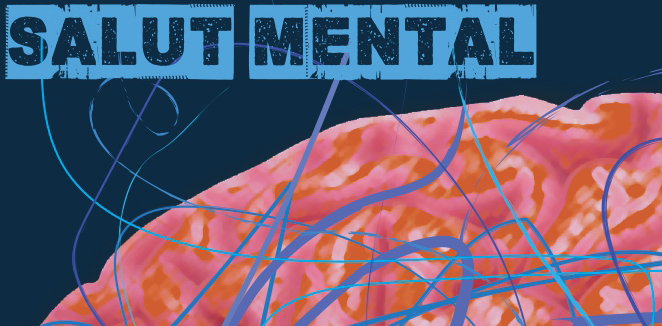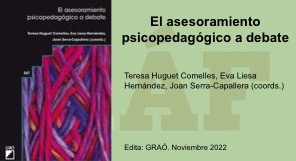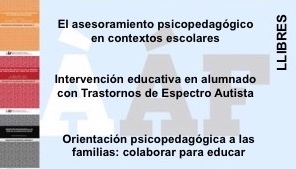El abordaje de conductas disruptivas desde una perspectiva inclusiva
DOI:
https://doi.org/10.32093/ambits.vi55.5027Palabras clave:
Gestión de la conducta, Educación inclusiva, Estrategias proactivas, Red de apoyoResumen
La gestión de las conductas disruptivas es una de las grandes preocupaciones en el ámbito escolar. Esta gestión a menudo acaba siendo reactiva, en lugar de proactiva, focalizada en un alumno y delegada a determinados especialistas distando, así, de ser una atención realmente inclusiva. El propósito de este artículo es compartir experiencias de gestión de conducta implementadas en escuelas con un carácter marcadamente inclusivo. Mediante las experiencias de un grupo de profesionales de escuelas inclusivas se presenta el enfoque y algunas de las estrategias que destacan como clave para un abordaje más inclusivo de las situaciones con conductas disruptivas. Explicitan la importancia de implementar metodologías activas, una organización eficiente de los profesionales, el acuerdo de normas coherentes con toda la comunidad educativa (incluyendo familia y alumnado) y el establecimiento de un vínculo afectivo con el alumnado.
Citas
Booth, T., & Ainscow, M. (2002). The index for inclusion. Bristol: Centre for Studies on Inclusive Education.
Clunies-Ross, P., Little, E., & Kienhuis, M. (2008). Self‐reported and actual use of proactive and reactive classroom management strategies and the irrelation ship with teachers tress and student behaviour. Educational Psychology: An International Journal of Experimental Educational Psychology, 28(6), 693–710. https://doi.org/10.1080/01443410802206700
Dicke, T., Elling, J., Schmeck, A., & Leutner, D. (2015). Reducing reality shock : The effects of classroom management skills training on beginning teachers. Teaching and Teacher Education, 48, 1–12. https://doi.org/10.1016/j.tate.2015.01.013
Durlak, J. A., Weissberg, R. P., &Pachan, M. (2010). A Meta-Analysis of After-School Programs That Seek to Promote Personal and Social Skills in Children and Adolescents. American Journal of Community Psychology, 45(3–4), 294–309. https://doi.org/10.1007/s10464-010-9300-6
European Agency for Special Needs. (2019). Country Information. https://www.europeanagency.org/country-information
Hepburn, L., &Beamish, W. (2019). Towards implementation of evidence-based practices for classroom management in Australia: A review of research. Australian Journal of Teacher Education, 44(2). https://doi.org/10.14221/ajte.2018v44n2.6
Humphrey, N., Barlow, A., Wigelsworth, M., Lendrum, A., Pert, K., Joyce, C., Turner, A. (2016). A cluster randomized controlled trial of the Promoting Alternative Thinking Strategies (PATHS) curriculum. Journal of School Psychology, 58, 73–89. https://doi.org/10.1016/j.jsp.2016.07.002
Korpershoek, H., Harms, T., de Boer, H., van Kuijk, M., & Doolaard, S. (2016). A Meta-Analysis of the Effects of Classroom Management Strategies and Classroom Management Programs on Students’ Academic, Behavioral, Emotional, and Motivational Outcomes. Review of Educational Research, 86(3), 643–680. https://doi.org/10.3102/0034654315626799
Lavelle, M., Stewart, D., James, K., Richardson, M., Renwick, L., Brennan, G., &Bowers, L. (2016). Predictors of effective de-escalation in acute inpatient psychiatric settings. Journal of Clinical Nursing, 25(15–16), 2180–2188. https://doi.org/10.1111/jocn.13239
OECD (2014). TAILS 2013 Results: An International Perspective on Teaching and Learning, TAILS. OECD Publishing. http://dx.doi.org/10.1787/9789264196261-en
OECD (2019), TALIS 2018 Results (Volume I): Teachers and School Leaders as Lifelong Learners, TALIS, OECD Publishing, Paris, https://doi.org/10.1787/1d0bc92a-en.
Reinke, W. M., Stormont, M., Herman, K. C., Wang, Z., Newcomer, L., & King, K. (2014). Use of Coaching and Behavior Support Planning for Students With Disruptive Behavior Within a Universal Classroom Management Program. Journal of Emotional and Behavioral Disorders, 22(2), 74–82. https://doi.org/10.1177/1063426613519820
Simonsen, B., Fairbanks, S., Briesch, A., Myers, D., & Sugai, G. (2008). Evidence-based Practices in Classroom Management: Considerations for Research to Practice. Education and Treatment of Children, 31(3), 351–380.
United Nations. (2015). Transforming our World: The 2030 Agenda for Sustainable Development, 21 October 2015, A/RES/70/1, http://www.un.org/en/ga/search/view_doc.asp?symbol=A/RES/70/1.
Walker, V. L., & Snell, M. E. (2016). Teaching Paraprofessionals to Implement Function-Based Interventions. Focus on Autism and Other Developmental Disabilities, 32(2), 114–123. https://doi.org/10.1177/1088357616673561

Descargas
Publicado
Número
Sección
Licencia
Los autores/as conservan los derechos de autor y conceden a la revista el derecho de primera publicación de la obra, registrada bajo una licencia Creative Commons Reconeixement-NoComercial-Sense Obra Derivada. Esta licencia permite la descarga de las obras y que se puedan compartir con otros siempre que se reconozca la autoría, pero no permite que se modifiquen de ninguna forma ni ser utilizadas con finalidad comercial.














